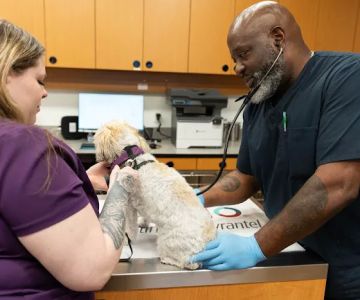Home Care Tips for Pets with Special Needs
As pet owners, we all want the best for our furry companions, and when they have special needs, providing the right care becomes even more crucial. Whether your pet is aging, has a chronic illness, or suffers from a disability, there are a variety of ways you can support them at home. In this article, I’ll walk you through some essential home care tips for pets with special needs to ensure they lead a happy and healthy life.
1. Understand Your Pet’s Specific Needs
The first step in caring for a pet with special needs is to fully understand their condition. This could range from mobility issues, vision or hearing loss, neurological disorders, or chronic health problems like arthritis or diabetes. Knowing the symptoms, triggers, and limitations of your pet’s condition will guide you in making the right decisions when it comes to their care.
2. Create a Comfortable Living Space
For pets with special needs, a comfortable and safe environment is essential. If your pet has mobility issues, consider providing a soft, supportive bed that’s easy for them to get in and out of. For pets with vision or hearing impairments, remove any obstacles that could lead to accidents. You might also want to add ramps or steps to help your pet reach their favorite spots.
3. Proper Nutrition and Regular Vet Visits
Nutrition plays a crucial role in the health and well-being of all pets, especially those with special needs. Ensure that your pet’s diet is tailored to their specific condition. For example, pets with joint issues may benefit from foods rich in glucosamine, while those with diabetes may need to be on a special diet to regulate their blood sugar levels. Regular vet visits are also essential to monitor your pet’s health and adjust their care as needed.
4. Gentle Exercise and Mental Stimulation
Depending on their condition, pets with special needs may still benefit from exercise, but it’s important to modify their activity to suit their abilities. Light walks or short play sessions can help maintain their mobility and mental well-being. Mental stimulation is just as important—puzzles, toys, and activities that engage their senses can keep them sharp and entertained.
5. Assistive Devices and Mobility Aids
For pets with mobility challenges, there are many assistive devices available that can help them lead a more independent life. Wheelchairs, slings, and harnesses are just a few examples of products that can improve your pet’s mobility and comfort. These devices can be especially helpful for older pets or those recovering from surgery.
6. Hygiene and Grooming Care
Pets with special needs may require more frequent grooming, especially if their condition affects their ability to groom themselves. Regularly brushing your pet’s coat, trimming their nails, and cleaning their ears will prevent discomfort and infections. If your pet has mobility issues, consider giving them a gentle bath with a supportive sling to help them stay clean.
7. Emotional Support and Affection
Finally, never underestimate the power of emotional support. Pets with special needs often require extra love and attention. Spending quality time with your pet, providing them with affection, and being patient as they adapt to their condition will strengthen the bond between you and ensure they feel safe and cared for.
At Hidden Brook Veterinary, we specialize in providing the best care for pets with special needs. Our team is ready to assist you in ensuring your pet gets the love and care they deserve. For expert advice, personalized care, and products tailored to your pet’s needs, feel free to contact us.











